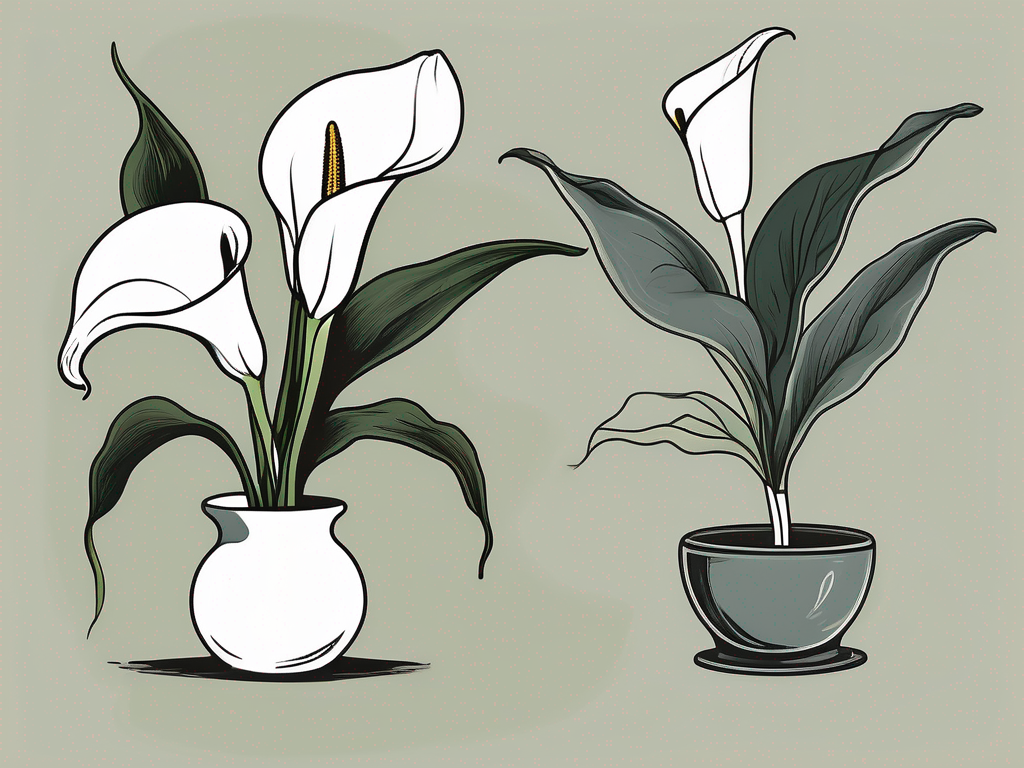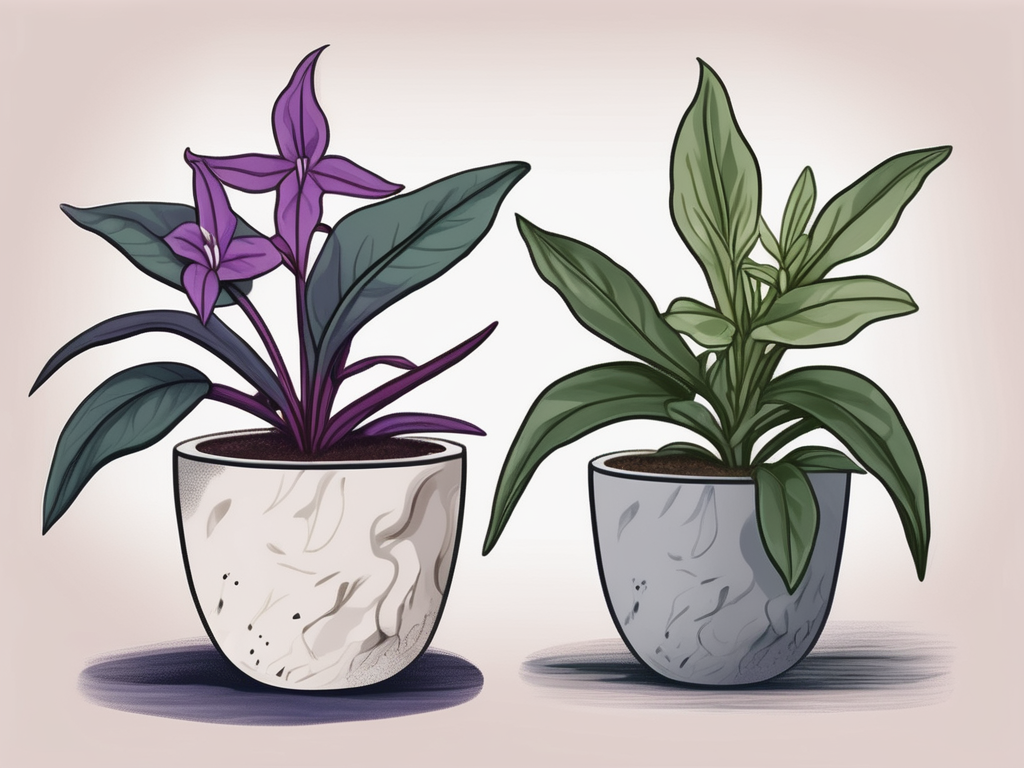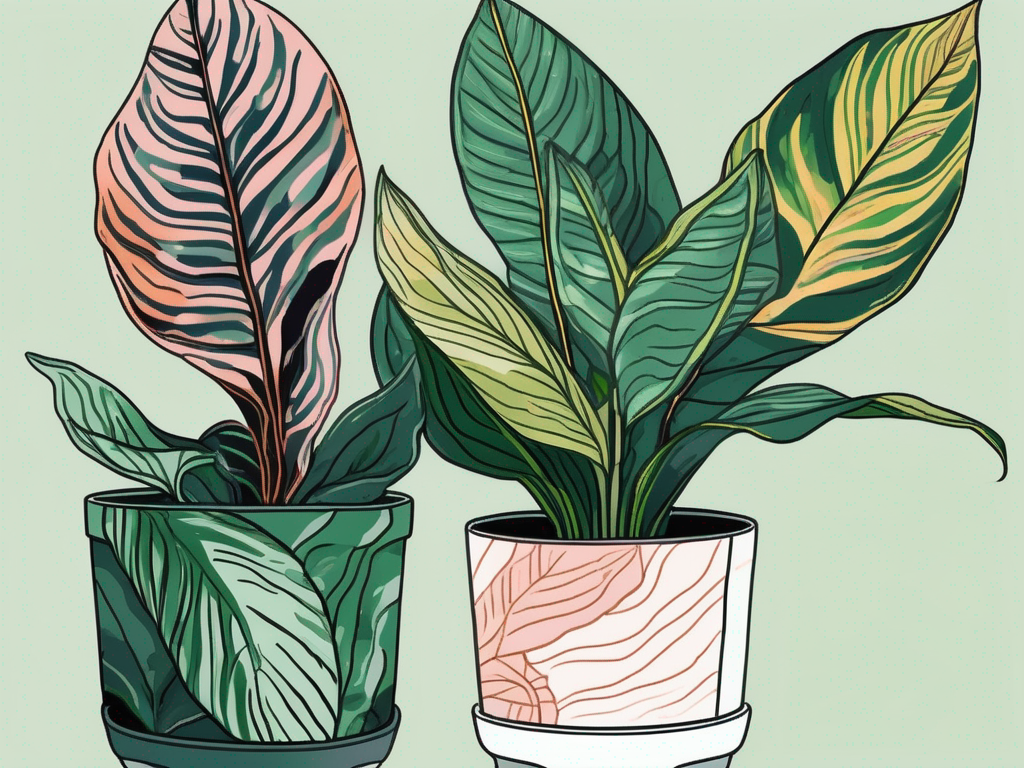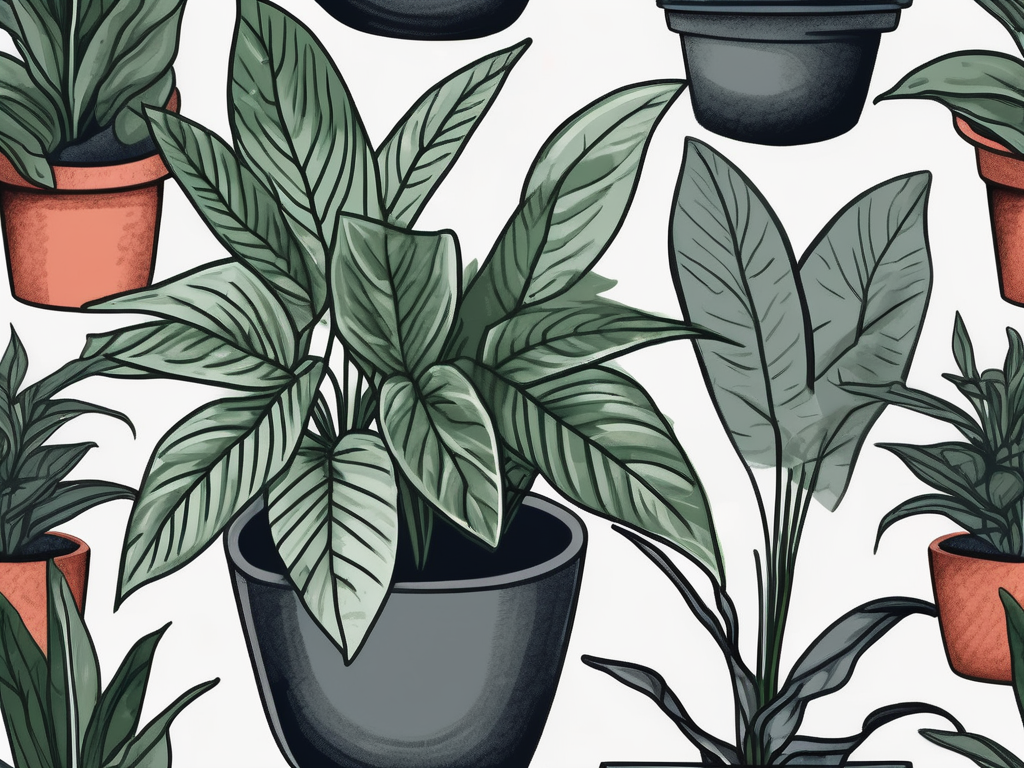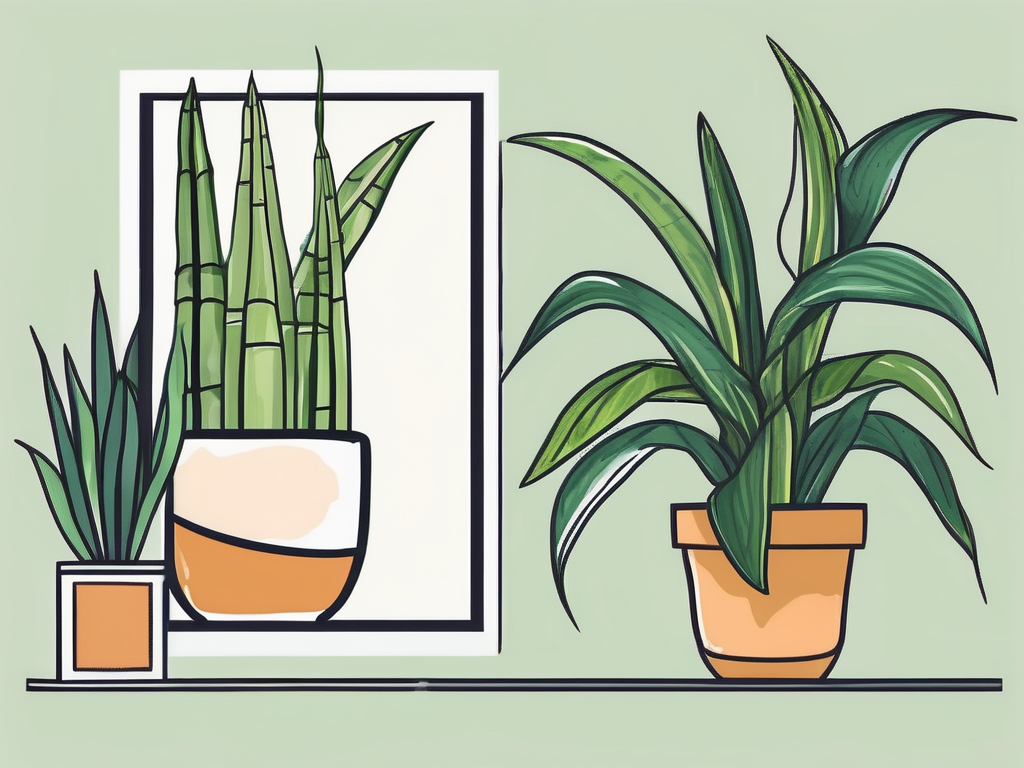
If you're looking to cultivate a beautiful English Ivy plant, one of the most crucial factors to consider is the soil. Providing the right soil conditions can make all the difference in the growth and overall health of your ivy. In this comprehensive guide, we will delve into the many aspects of soil that affect English Ivy and explore the different types of soil, enhancing soil quality, and solutions to common soil problems. Let's get started!
Understanding English Ivy: An Overview
Before we dive into the realm of soil, let's first familiarize ourselves with English Ivy and its characteristics. English Ivy, scientifically known as Hedera helix, is a lush and hardy evergreen vine that can bring a touch of elegance to any garden or indoor space. It is known for its beautiful, glossy leaves and its ability to climb walls, fences, and even trees.
Native to Europe, English Ivy has been widely cultivated for its ornamental value as well as its ability to provide ground cover and natural barriers. It is adored for its versatility and ease of care, making it a popular choice among garden enthusiasts and beginners alike.
The Origin and Characteristics of English Ivy
English Ivy has a rich history and a fascinating origin. It was originally brought to North America by early European settlers and quickly gained popularity for its attractive appearance and ability to thrive in various conditions. Its leaves are typically dark green, but variations exist, ranging from light green to variegated green and cream.
Aside from its aesthetic appeal, English Ivy also provides numerous environmental benefits. It helps reduce soil erosion, acts as a natural air purifier by filtering pollutants, and can even provide a habitat for small wildlife. Plus, it adds a touch of natural beauty and tranquility to any space it graces.
The Importance of Soil for English Ivy Growth
Now, let's delve into the role soil plays in the growth of English Ivy. Soil acts as a foundation for plants, providing essential nutrients, moisture, and stability. The right soil conditions can promote healthy root development and support overall plant vigor.
English Ivy thrives in soil with optimal drainage and moisture retention while also being well-aerated. The pH level of the soil, nutrient content, and organic matter are all vital factors to consider when choosing the best soil for your ivy.
Key Factors in Choosing the Right Soil
When it comes to selecting the ideal soil for your English Ivy, there are several key factors to keep in mind. Let's explore these factors in detail.
Soil pH Levels and English Ivy
The pH level of the soil refers to its level of acidity or alkalinity. English Ivy thrives in slightly acidic soils with a pH level ranging from 5.5 to 6.5. It is crucial to test the pH level of your soil and make necessary adjustments to create an optimal growing environment for your ivy. Adding organic matter, such as compost or peat moss, can help increase acidity if needed.
Nutrient Requirements for English Ivy
English Ivy requires essential nutrients to support its growth and development. These include nitrogen, phosphorus, and potassium, as well as micronutrients such as iron and magnesium. A balanced fertilizer specifically formulated for ivy can provide the necessary nutrients. It's important not to over-fertilize, as this can lead to salt buildup and damage to the plant.
Drainage and Moisture Retention in Soil
Proper soil drainage is crucial for preventing waterlogged roots and root rot. English Ivy prefers soil that drains well while also retaining enough moisture to keep it hydrated. Adding organic matter to the soil, such as compost or peat moss, can improve both drainage and moisture retention. Additionally, ensuring proper spacing between plants allows for adequate air circulation and reduces the risk of disease.
Different Types of Soil for English Ivy
English Ivy can adapt to various soil types, but certain types are more conducive to its growth than others. Let's take a closer look at the different soil options and their suitability for English Ivy.
Loamy Soil and English Ivy
Loamy soil, which consists of a balanced mixture of sand, silt, and clay, is often considered the ideal soil for many plants, including English Ivy. It provides excellent drainage, moisture retention, and nutrient availability. English Ivy planted in loamy soil tends to flourish and display robust growth.
Sandy Soil and English Ivy
Sandy soil, composed of larger particles, provides good drainage but tends to dry out quickly. Although English Ivy can tolerate sandy soil, it may require more frequent irrigation to maintain adequate moisture levels. Incorporating organic matter into sandy soil can help improve its water-holding capacity.
Clay Soil and English Ivy
Clay soil, consisting of fine particles, tends to retain moisture for longer periods. However, it can become compacted and lacks proper aeration, posing challenges for root growth. English Ivy planted in clay soil may experience drainage issues, which can be addressed by improving soil structure through the addition of organic matter and creating drainage channels.
Enhancing Soil Quality for English Ivy
Incorporating organic matter and enhancing soil fertility can significantly improve the overall quality of the soil for English Ivy. Let's explore some effective ways to enhance your soil and create an optimal environment for your ivy to thrive.
Organic Matter and Soil Fertility
Adding organic matter, such as compost or well-rotted manure, can enrich the soil by increasing its nutrient content and improving its structure. Organic matter also promotes beneficial microbial activity, enhances water-holding capacity, and helps prevent soil compaction. Regularly amending your soil with organic matter supports the long-term health and vitality of your English Ivy.
The Role of Compost and Fertilizers
Compost, often referred to as "black gold," is a valuable resource for enriching the soil. It improves soil structure, provides essential nutrients, and enhances moisture retention. Applying compost around the base of your English Ivy can significantly benefit its growth. Additionally, using a slow-release fertilizer specifically formulated for ivy can supply continuous nutrients throughout the growing season.
Common Soil Problems and Solutions for English Ivy
Even with the best soil preparation, certain soil problems can arise when growing English Ivy. However, fear not! We have solutions to help you overcome these challenges and keep your ivy thriving.
Overcoming Poor Drainage
If you find that your soil has poor drainage, leading to waterlogged conditions, you can improve it by incorporating organic matter, such as compost or peat moss, into the soil. This will help create air pockets and enhance drainage. Additionally, planting English Ivy in raised beds or containers with well-draining potting mix can prevent waterlogging and promote healthy growth.
Correcting Soil pH Imbalances
If your soil pH is too acidic or alkaline, it can hinder the growth of English Ivy. To correct imbalances, you can adjust the pH level using soil amendments such as lime to raise pH (for acidic soil) or sulfur to lower pH (for alkaline soil). It's advisable to test the soil regularly and make incremental adjustments to maintain the optimal pH range for your ivy.
Dealing with Nutrient Deficient Soil
If your English Ivy shows signs of nutrient deficiency, such as yellowing leaves or stunted growth, it may require additional nourishment. Applying a balanced fertilizer specifically formulated for ivy can help replenish essential nutrients and support healthy growth. Remember to follow the instructions for application rates and frequency to avoid over-fertilization.
In conclusion, providing the best soil for your English Ivy is essential to its growth and overall health. Understanding the origin and characteristics of English Ivy, as well as the key factors in choosing the right soil, will enable you to create an optimal growing environment. Additionally, enhancing soil quality through organic matter, managing common soil problems, and meeting the nutrient requirements of your ivy will help ensure long-term success. With the right soil, your English Ivy will flourish and become a captivating centerpiece in your garden or indoor space. Happy gardening!


